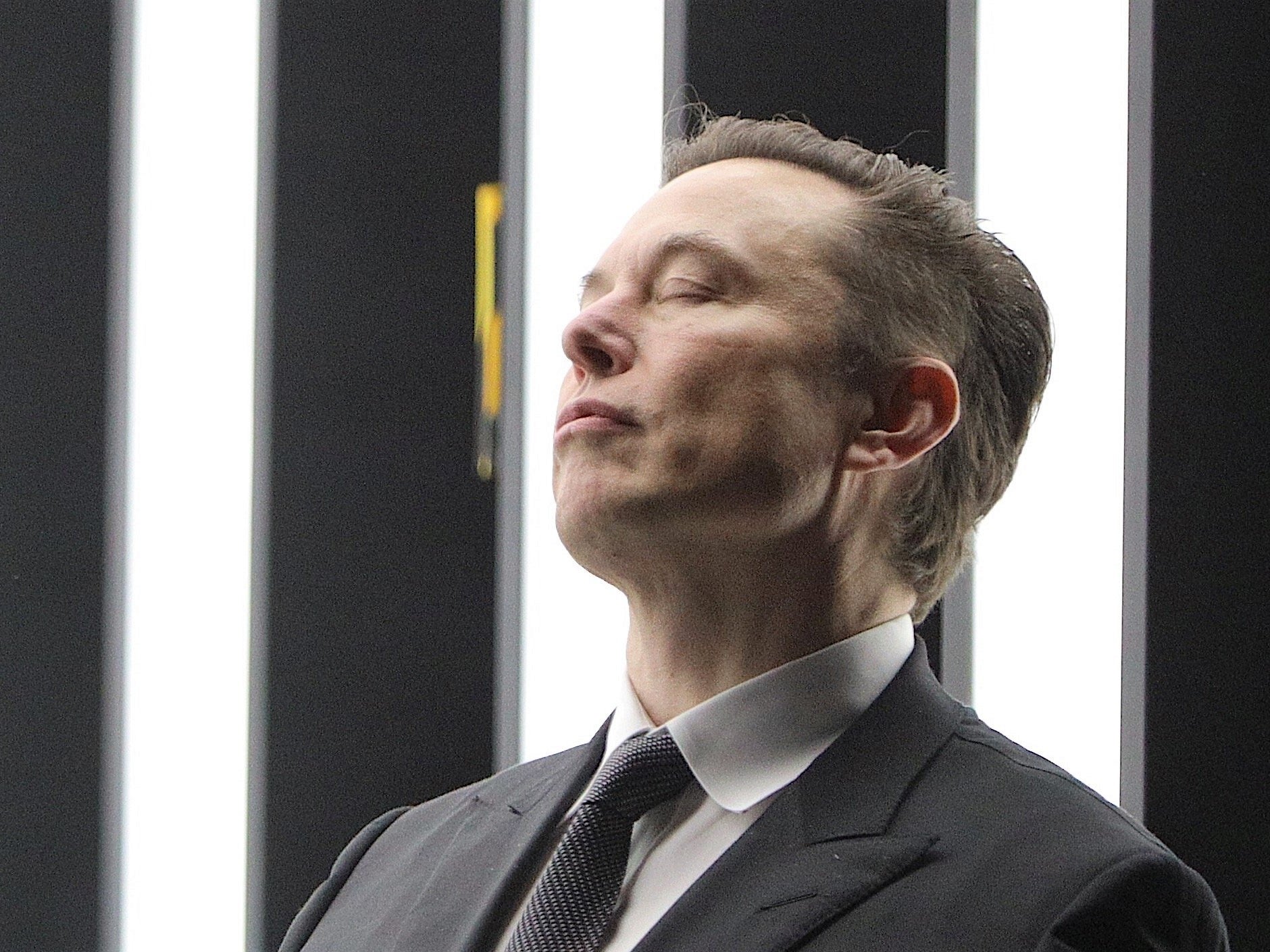Elon Musk’s tweets about Twitter offer clue to why he bought major stake in company

Your support helps us to tell the story
From reproductive rights to climate change to Big Tech, The Independent is on the ground when the story is developing. Whether it's investigating the financials of Elon Musk's pro-Trump PAC or producing our latest documentary, 'The A Word', which shines a light on the American women fighting for reproductive rights, we know how important it is to parse out the facts from the messaging.
At such a critical moment in US history, we need reporters on the ground. Your donation allows us to keep sending journalists to speak to both sides of the story.
The Independent is trusted by Americans across the entire political spectrum. And unlike many other quality news outlets, we choose not to lock Americans out of our reporting and analysis with paywalls. We believe quality journalism should be available to everyone, paid for by those who can afford it.
Your support makes all the difference.The announcement that Elon Musk has bought a large stake in Twitter has shocked the technology industry.
The purchase of just under 10 per cent of Twitter to become its biggest shareholder is another surprising move for the world’s richest man, who seems to delight in taking the unexpected path.
But there might be clues to his plans for Twitter in the posts he has used it to share in recent weeks and even years.
On the one hand, another concern seems unnecessary: Mr Musk already runs SpaceX and Tesla, as well as smaller ventures such as his tunnel-boring project and brain-computer interface company Neuralink.
But, on the other, the billionaire has always shown a personal and professional interest in the site. He is one of its most prominent and prolific users – and those posts have in the past often been about how exactly Twitter works.
The tone of those posts has changed, over the years, from being critical to positive and then back again. Sometimes, Mr Musk seems to delight in his contradictory feelings about the site.
“My Twitter is pretty much complete nonsense at this point,” he wrote in April 2019, for example. “I was always crazy on Twitter fyi,” he had posted just four days earlier.
Over time, Mr Musk’s posts have become more and more trivial, often simply pointing to memes – though he also continues to use it for important business updates.
But in recent months, Mr Musk has shown more and more concern about the mechanics of how the site works, and what kind of work it is doing to improve it.
In January, for instance, he seemed to hit back at the company’s plan to allow people to add NFTs to their profile pictures. He pointed out that it came amid the widespread problem of cyber criminals who impersonate celebrities including Mr Musk to try and trick people into sending cryptocurrency.
“Twitter is spending engineering resources on this bs while crypto scammers are throwing a spambot block party in every thread!?” he wrote, in a tweet that was shared more than 11,000 times.
Last month, those posts started to become more specific. In late March – after his purchase was completed, according to SEC disclosures, though before it was announced – he started to ask his followers about whether Twitter was working properly.
“Twitter algorithm should be open source,” he polled his followers on 24 March, with which some 83 per cent of his followers agreed. A day later, he ran another vote.
“Free speech is essential to a functioning democracy,” he wrote. “Do you believe Twitter rigorously adheres to this principle?”
More than 70 per cent of his followers said they did not agree, a finding that he then suggested should lead to changes in the way Twitter works.
“Given that Twitter serves as the de facto public town square, failing to adhere to free speech principles fundamentally undermines democracy,” he wrote, quoting his original poll. “What should be done?”
As a minority shareholder, Mr Musk will not be directly able to change the engineering priorities of those working for the company. But it appears clear that he is both fascinated with as well as critical of the site – and that presumably fed into his decision to buy a major stake in the company.
Join our commenting forum
Join thought-provoking conversations, follow other Independent readers and see their replies
Comments